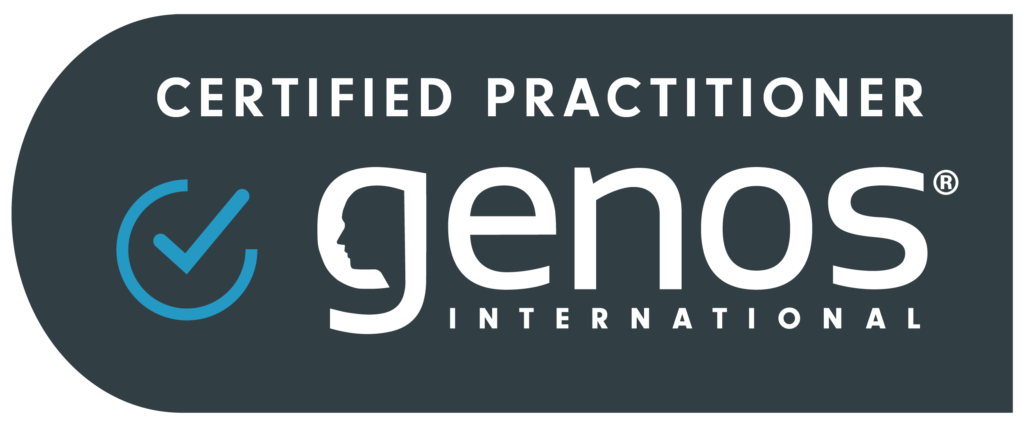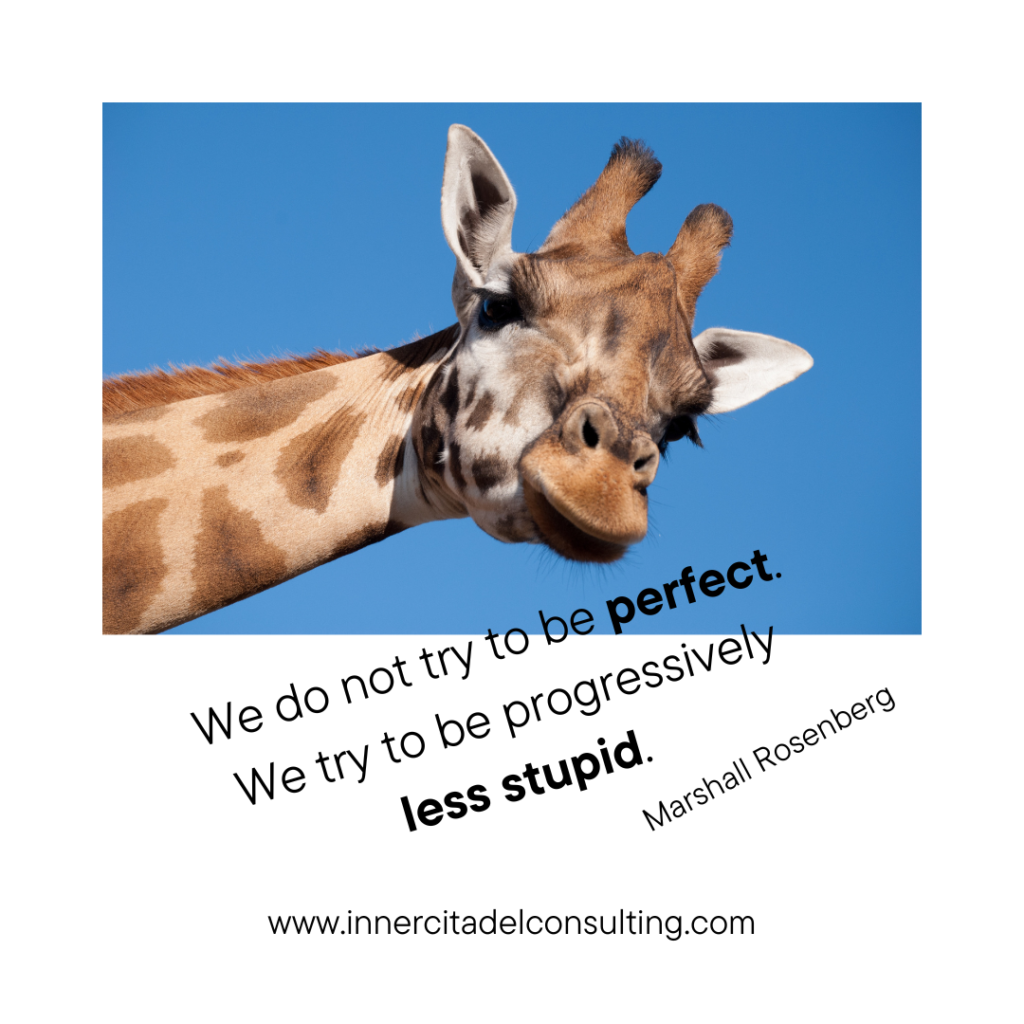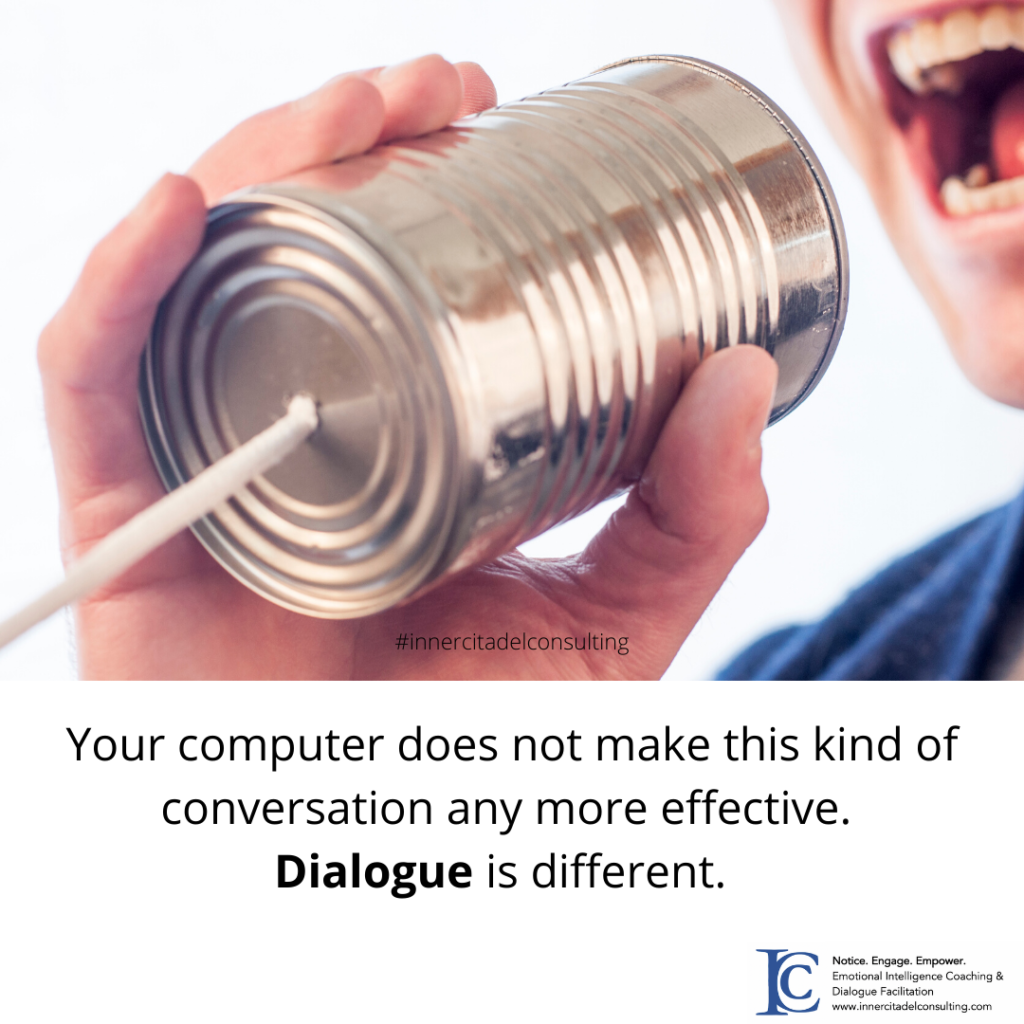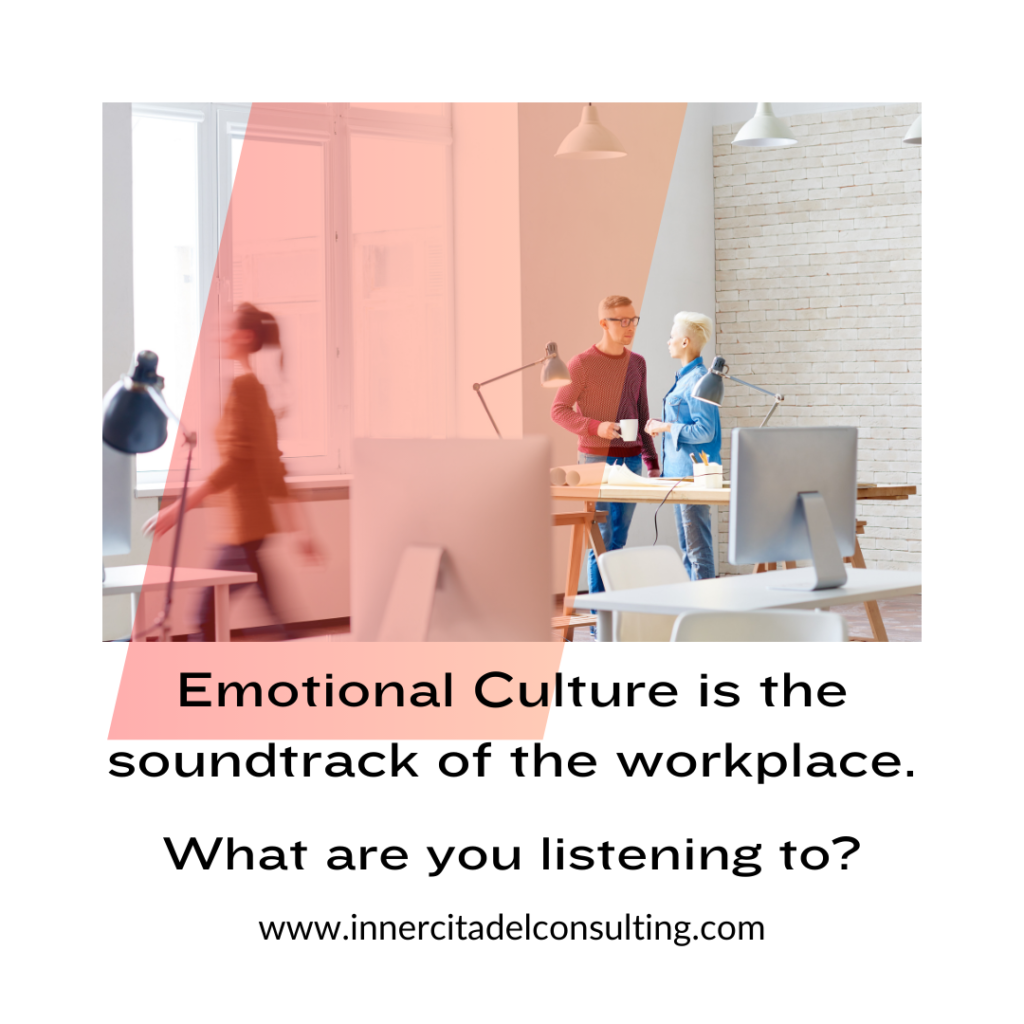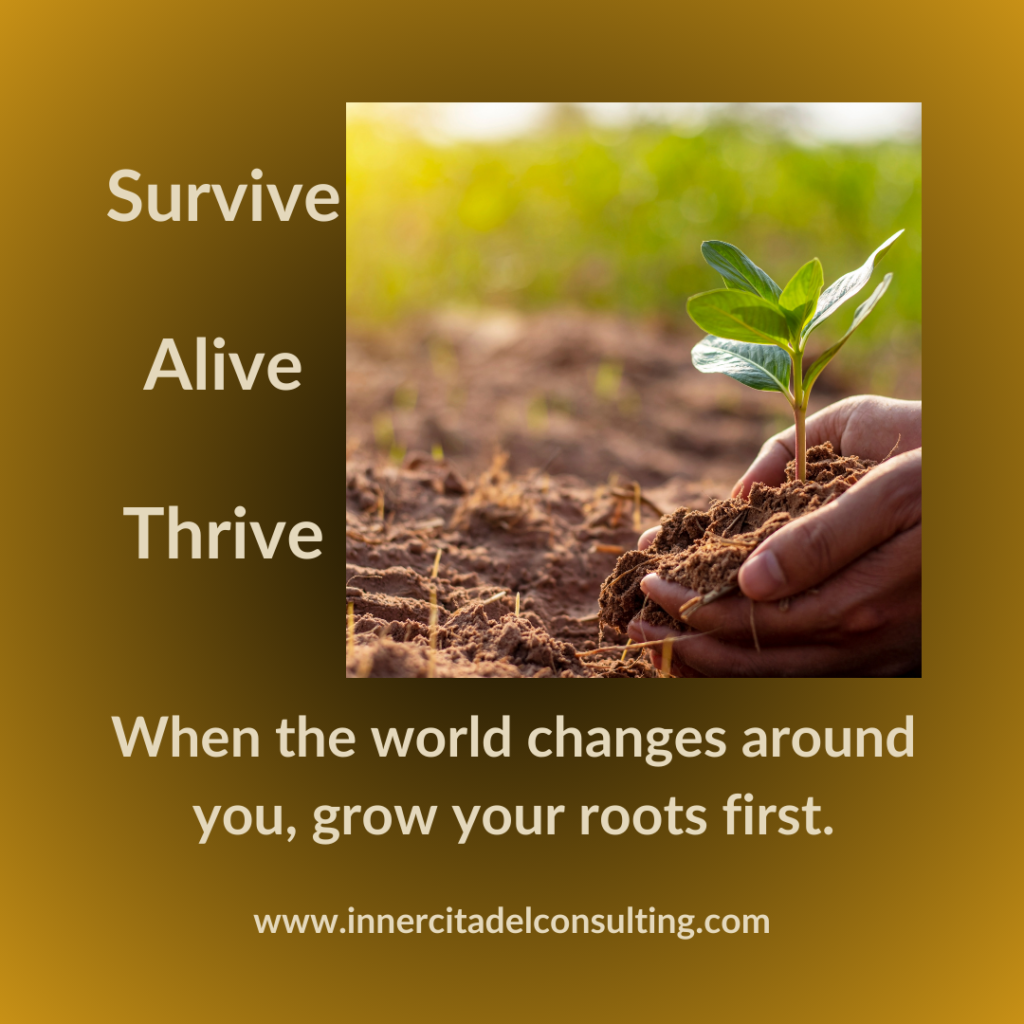Conflict is not inherently negative.
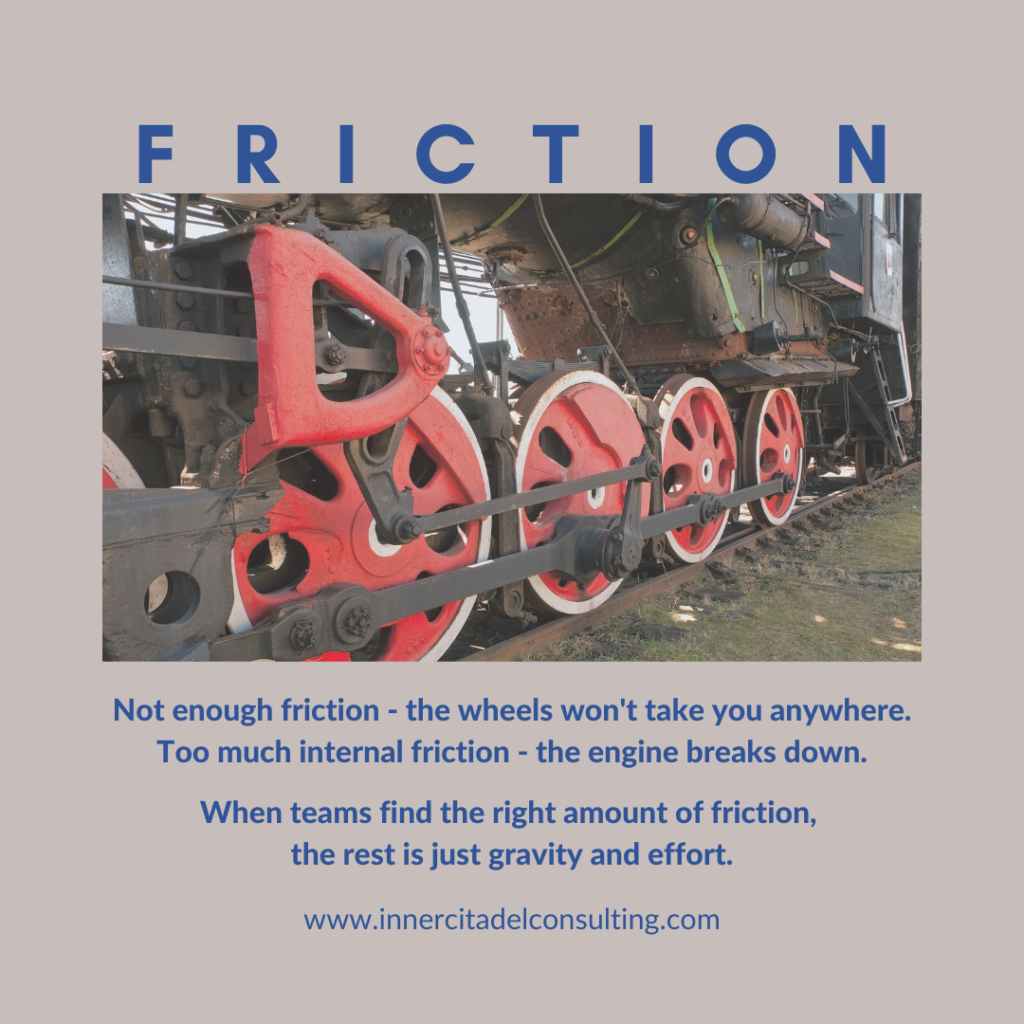
Very few people like conflict. But conflict is a natural (and sometimes beneficial) part of relationships. This is true even (maybe especially) in the workplace. I like to think of conflict as friction – too little and you get nowhere, too much and everything locks up … or explodes. [Weird aside: does anyone else think immediately about Ms. Frizzle and this Magic School Bus episode?]
We need friction. Our organizations need productive and managed conflict. The difficulty lies on the ability of the people holding a diversity of experience and perspectives in an organization to respond to conflict. It also lies in the environment of the organization to support conflict and resolution.
Emotional Intelligence helps
There has been a ton of research over the last five or six years on the effect of emotional intelligence in conflict, both interpersonal and organizational. A very cool study by Lee&Wong showed how teams with high average emotional intelligence managed relationship, task, and process conflict exceptionally well. These teams even became more cohesive with conflict. Teams with low average emotional intelligence were ambushed by conflict of all kinds. The super cool finding in the study was that you can’t tell the teams apart until you introduce conflict. This is one of the reasons I argue strongly for emotional intelligence development for all employees, not just leaders. [I’ve linked a great new systematic review of recent research here.]
The diagram below is a very well known framework for conflict in an organization. It’s old, and in some ways “out of date”. But I love old things that maintain their relevance. The diagram shows the factors and dynamics of conflict, from baggage we bring in to conflict at the top to the baggage we take out. In the middle is where we deny, suppress, avoid, or step into conflict, and the factors that influence the conflict and its resolution.
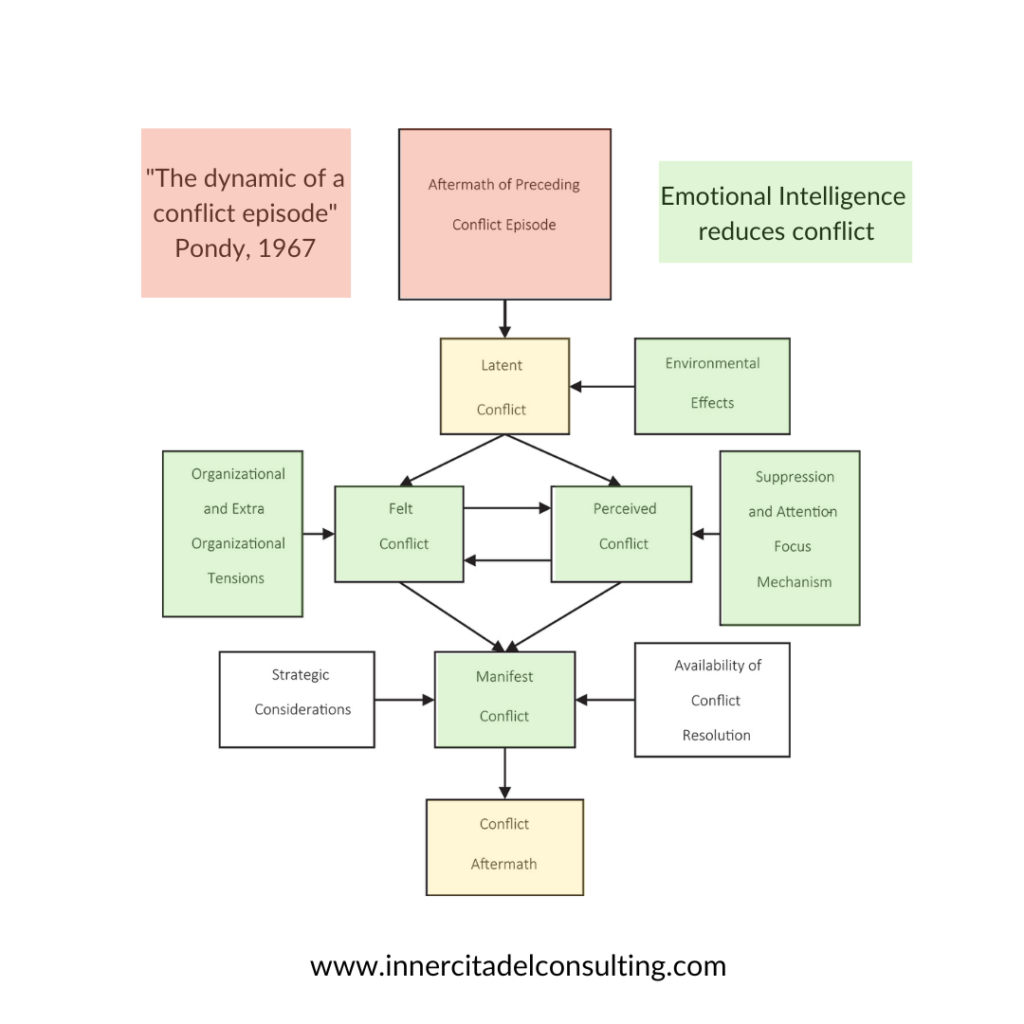
I’ve highlighted in green the places were individual or team emotional intelligence is shown in other studies to have a positive effect on conflict. Pay close attention to the middle of the diagram as you experience conflict. That’s where we find our friction – that’s where we can use our emotional intelligence skills to build a healthy result from the differences we have as people.
What strikes you about this model? How do you handle conflict in your teams or organizations? Are your teams having the same disagreements over and over? Maybe your leaders are so conflict averse that you can’t get anywhere on difficult topics. Emotional Intelligence isn’t a magic pill, but it is a very good multi-vitamin.

